Homegrown: Building a Post-Carbon Future (2023) – review
– Editors
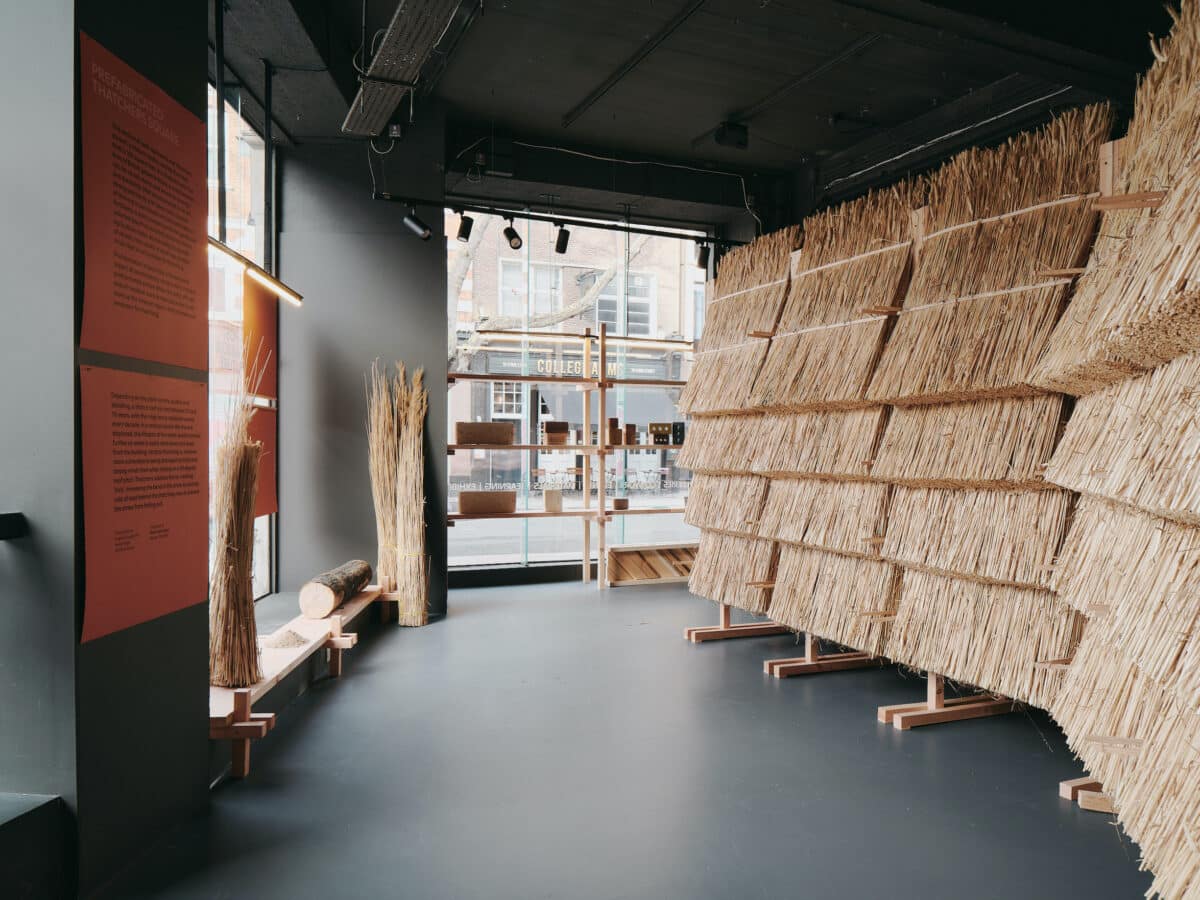
‘Homegrown: Building a Post-Carbon Future’ is an exhibition which, despite being in the small window gallery of the Building Centre in London, offers the visitor a chance to rethink the sources and uses of contemporary construction materials. Developed by curators Summer Islam, George Massoud, and Paloma Gormley of research-based architectural studio Material Cultures, in collaboration with the Building Centre, it reflects a mission to make a sustainable post-carbon built environment.
Their approach plays off the Building Centre’s history as the materials bureau for the Architectural Association, presenting shelves of bio-based construction products from Hempcrete bricks and Cobbage to Mycelium insulating panels, embracing the traditional and the cutting edge. Next to each sample object is a carefully placed number corresponding to a concise wall text that outlines the material’s origin and its potential applications. Placed in the centre of the space is a 1:1 scale (a 10 x 10ft block, called a Thatcher’s Square) wall of prefabricated straw roofing from a hybrid crop of rye and wheat.
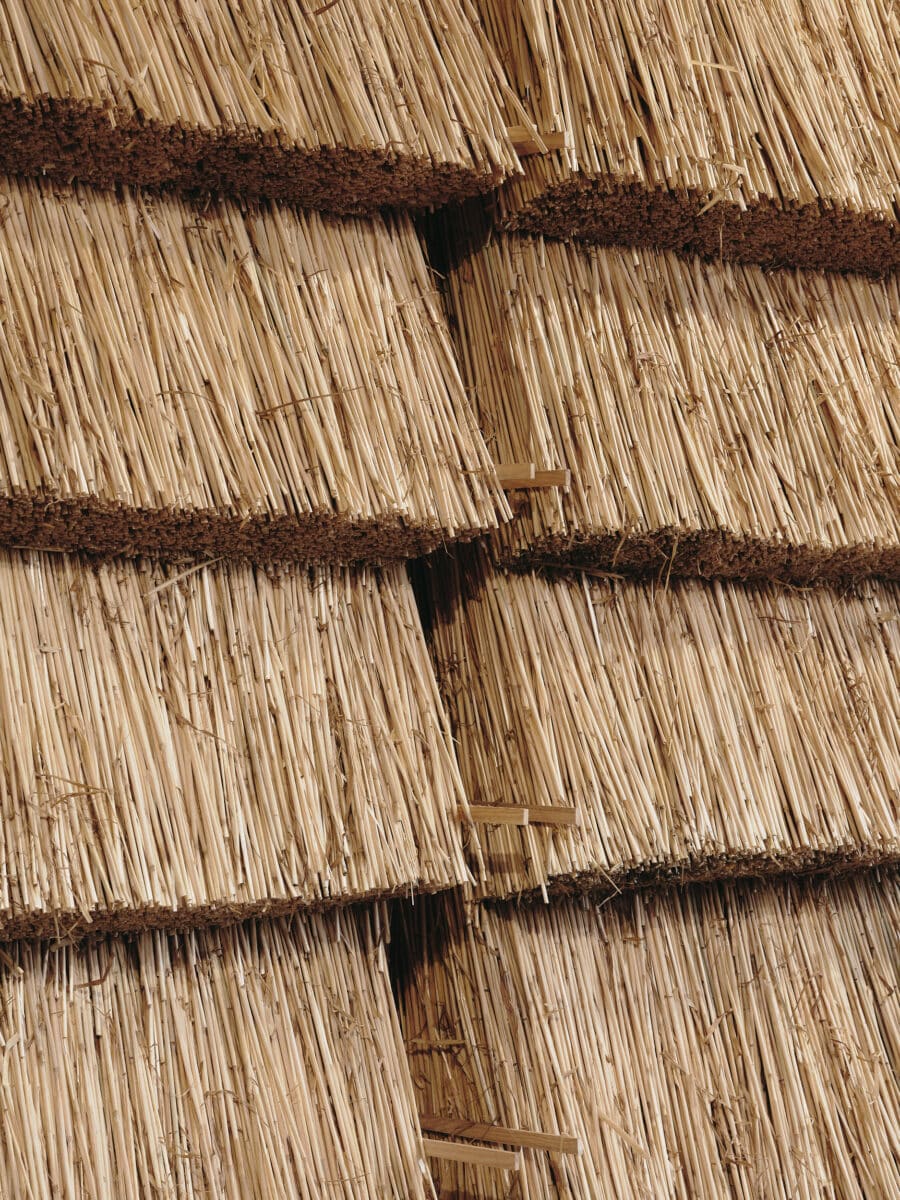
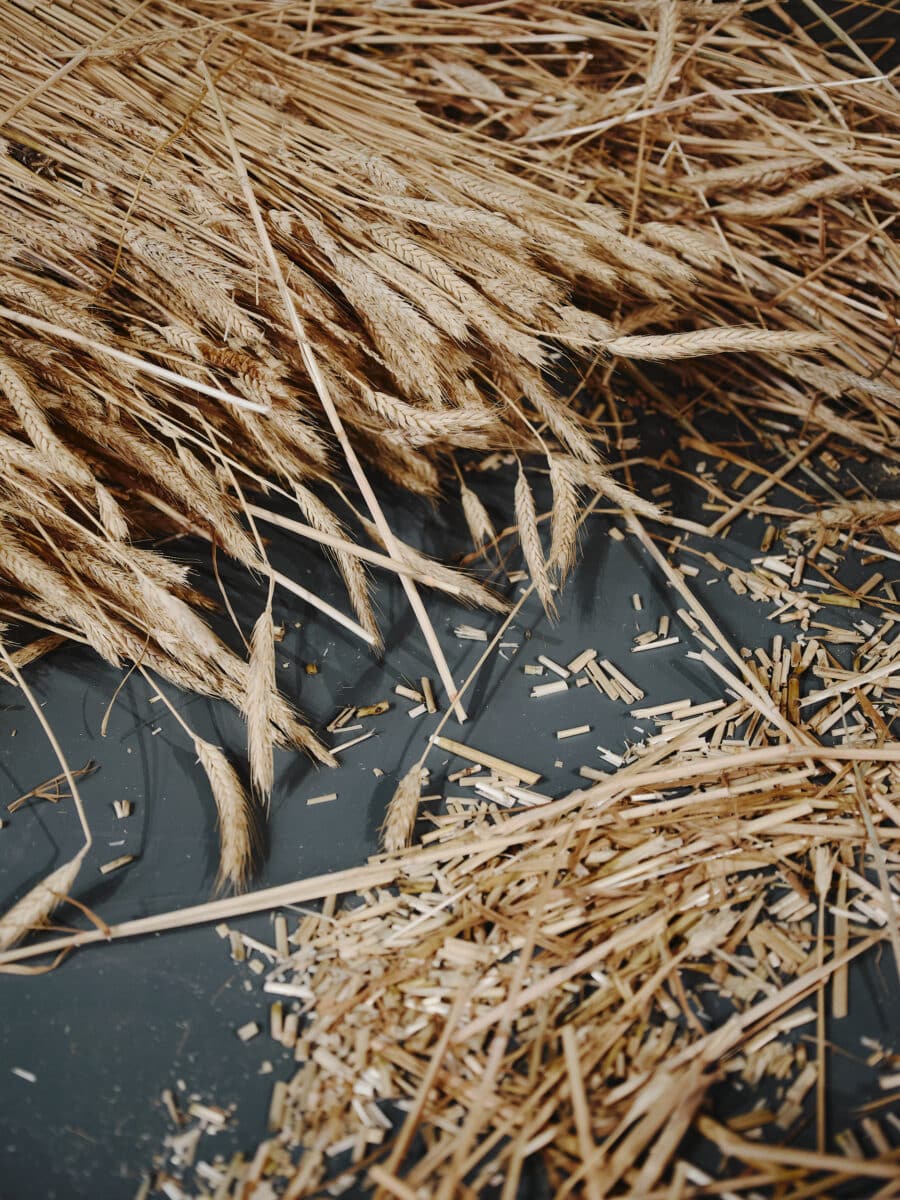
The materials are selected and presented as if they were type specimens. In the clarity of display and the precision of provided information there is an apparent replication of the ordered presentation of collections at science museums and libraries, or even a hyper-organised architecture office. For me this curatorial approach indicates that it is a serious collection of materials. They have been granted the same exposition given to the carbon-heavy materials that came before them, in countless shows during the twentieth century on the wonders of plastic and concrete. The direct, informative approach to each material’s use can also be seen in the texts accompanying individual products, such as ‘Strokettes’ by H.G.Matthews, ‘K-Bricks’ by Kenoteq, and ‘SilicaStone’ by Alusid, making them seem accessible and useable. Visiting architects, engineers, developers, and DIY builders are offered an easy way of transferring material knowledge into projects.
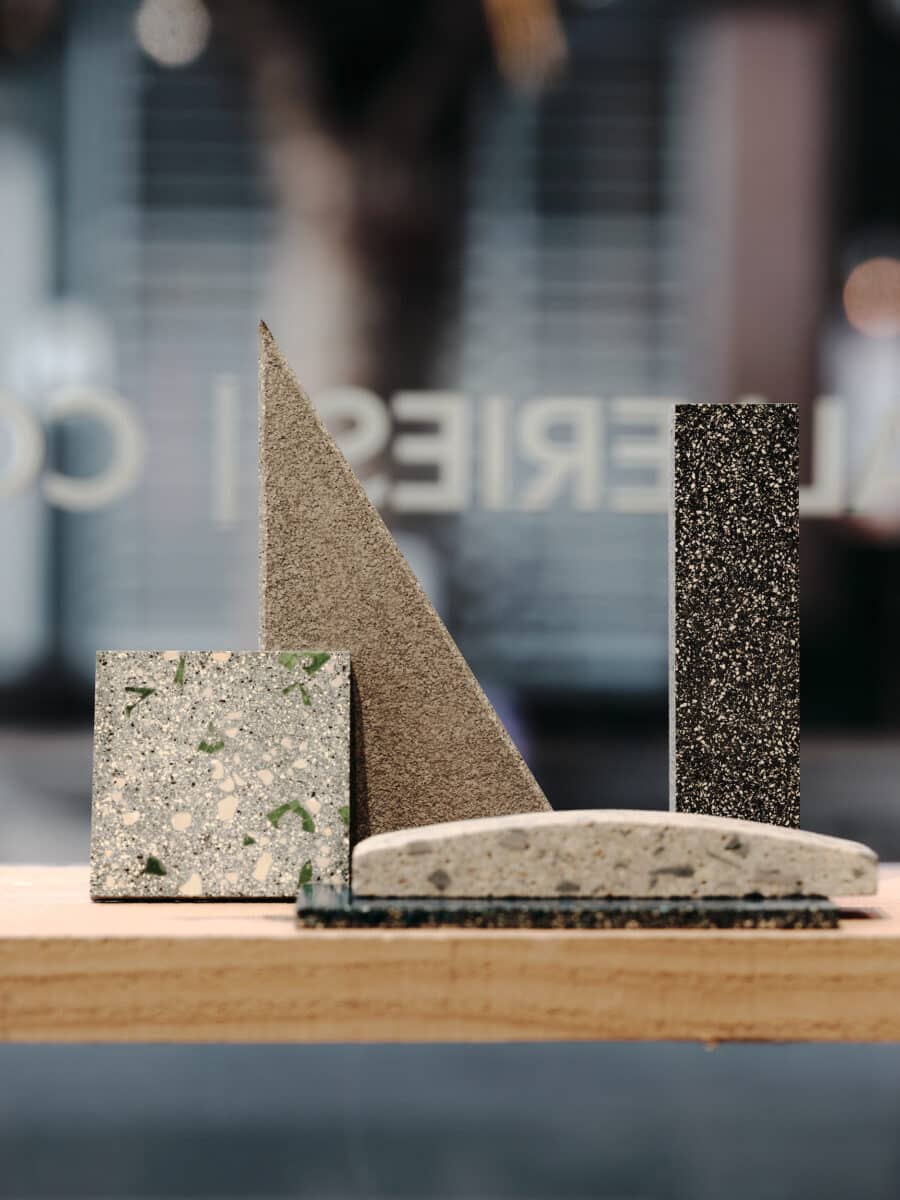
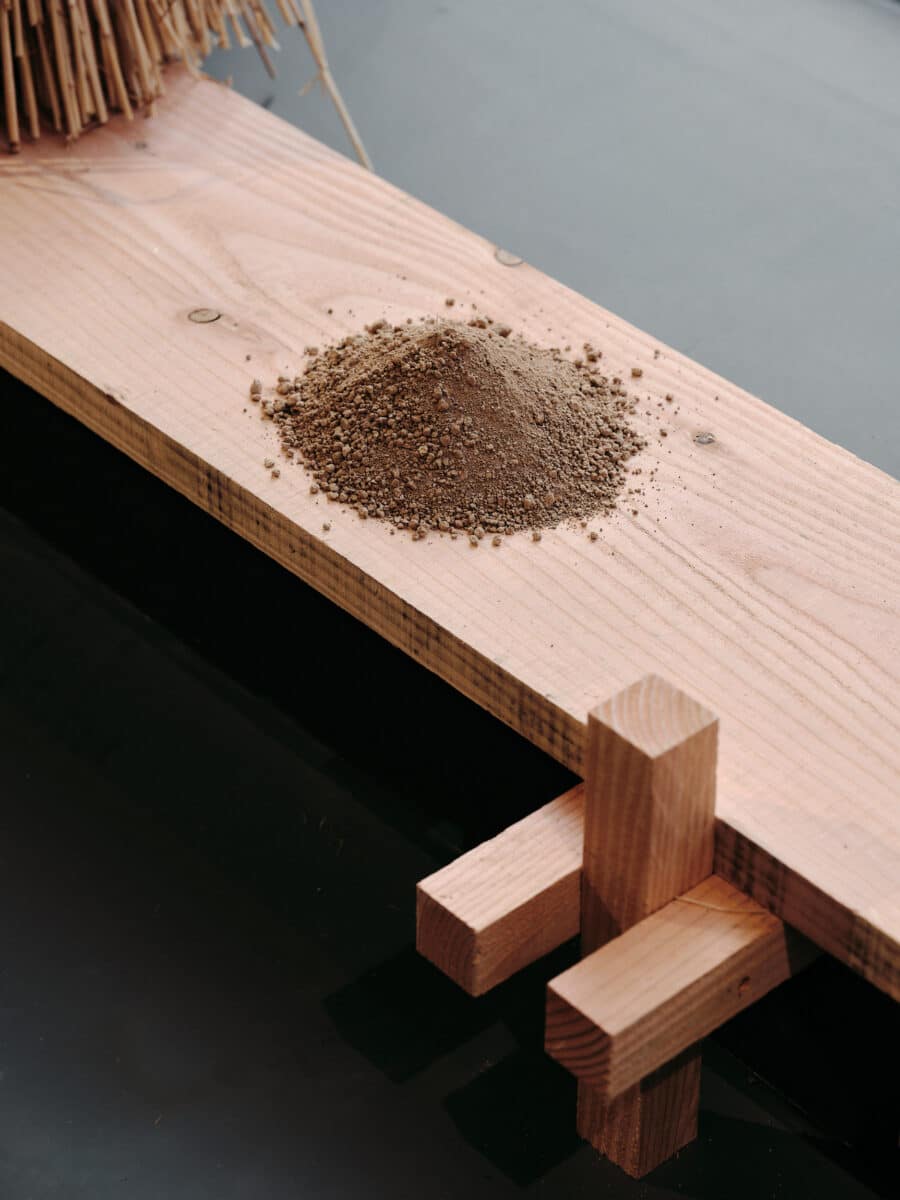
The role of the Building Centre in the exhibition speaks to the importance for institutions and collections to educate responsibly on sustainable material developments. Several exhibitions at larger art galleries have tried to engage with this subject in the past. An example is FormaFantasma’s ‘Cambio’ at the Serpentine Gallery, 2020, which offered valid research on timber use in design. Yet the exhibition’s useful mapping of resources and activist groups combatting, ‘the myth of an endless supply of materials’, was disguised as an abstract visual representation[1]. The information which felt important became footnotes on the exhibition’s website.
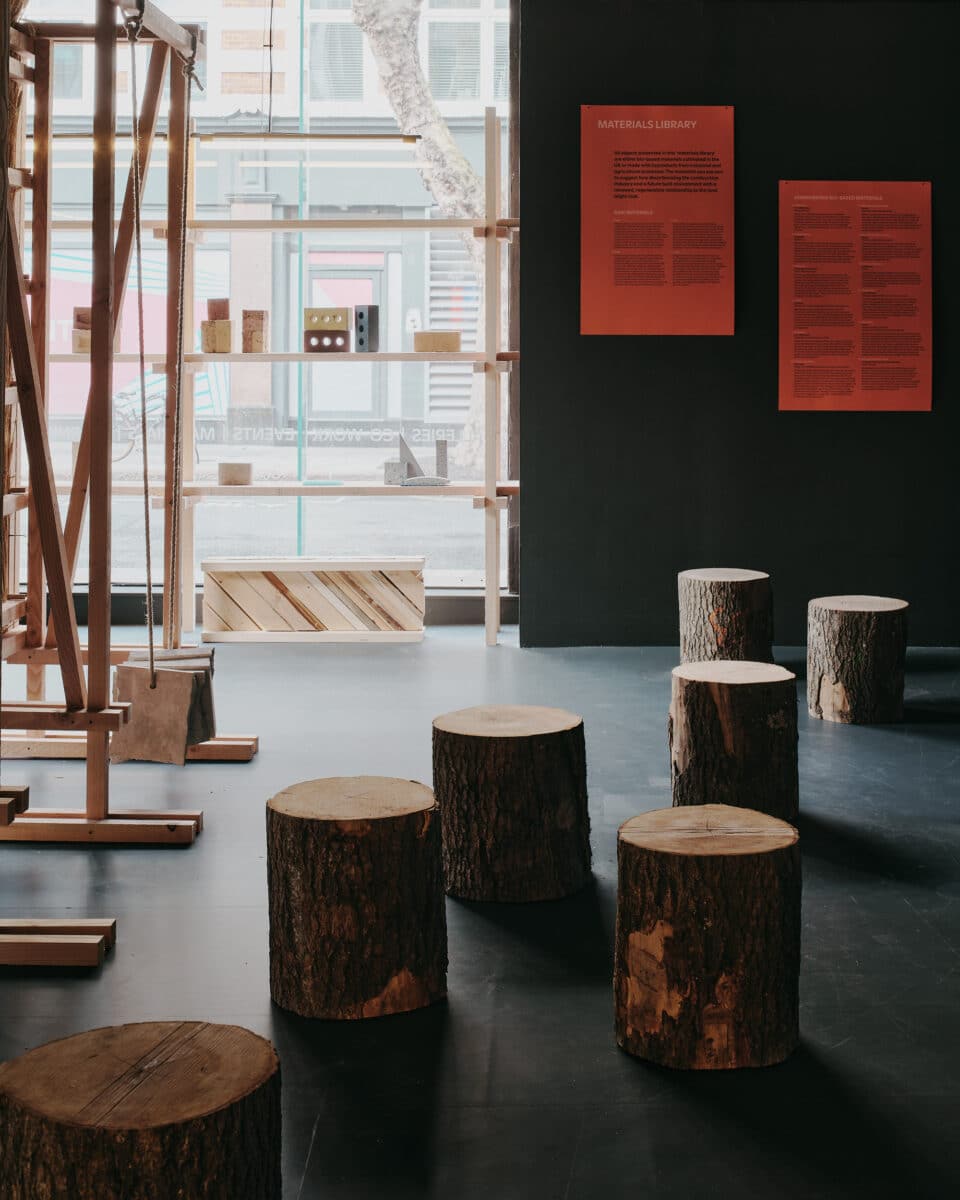
Three films produced by Material Cultures feature alongside the material specimens to dispel this myth of endless supply. The first, ‘Extraction’, highlights the extent of the construction industry’s reliance on fossil fuel products, from polyurethane insulation to plastic ground sheets, and calls for a more equitable use of the Earth’s resources. The second, ‘Timber’, discusses the historic use of the material and trees’ power to regenerate environments. Although defined as a construction material, timber will have to become a rarity due to the quantities we cut today, coupled with its slow growth. The third, ‘Straw’, spotlights the holes in the agricultural supply chains of the UK alongside the opportunities to make bio-based products from what we already grow. Each film overlays archive images, iPhone snapshots, stock films, and drone footage to create a textural image of each set of research; the images and videos overlap and flick quickly between each other, grounded by the narration of Material Cultures’ text. The research presented in the films comes from their recently published book, Material Reform [2]. This exhibition and book (to be reviewed separately in the Drawing Matter Reviews section) act together as a manifesto for Material Cultures. In their desire to make meaningful change by bringing bio-based and local construction products into the mainstream they give us the tools to help this happen.
Material Cultures ‘Homegrown: Building a Post Carbon Future’ is on display at the Building Centre, London until 15th April 2023.
Notes
1. FormaFantasma, The Archive of Lost Forests, 2020.
2. Material Cultures, Material Reform (London: Mack Books, 2022).
